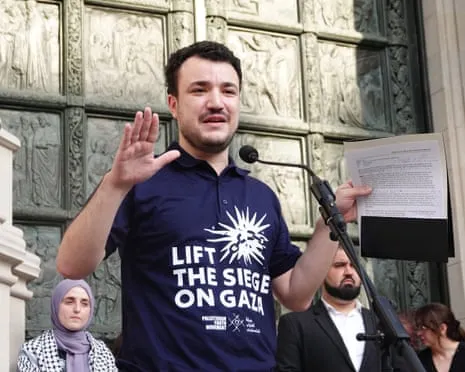
Latest
Update
Today's Top Highlights
Explore the intersection of technology and creativity through storytelling in the digital era.



Sex Abuse Allegations Against Prominent Down Under Broadcaster Downgraded
By Jennifer Moyer
•
18 Sep 2025


Awaiting a Visa Ahead of Death: Gaza’s Wounded Minors Stranded in Peril
By Jennifer Moyer
•
18 Sep 2025

Could the Stars Finally Coming Together for a ‘New Golden Age’ of Atomic Energy?
By Jennifer Moyer
•
18 Sep 2025


France Needed to Endorsed Palestine as a State Earlier: A Skeptic Asks: What Changed?
By Jennifer Moyer
•
18 Sep 2025

What Exactly Would Jimmy Kimmel State About Charlie Kirk’s Death?
By Jennifer Moyer
•
18 Sep 2025

‘It Felt Like a Nightmare – But I Never Escaped’: What It’s Like Losing Your Best Friend.
By Jennifer Moyer
•
18 Sep 2025


The nation Preparing for Major Protest Action During Worsening Governmental Turmoil
By Jennifer Moyer
•
18 Sep 2025
September 2025 Blog Roll
August 2025 Blog Roll
July 2025 Blog Roll
June 2025 Blog Roll
Popular Posts
Sponsored News
 News
News
Body Discovered in Vehicle Linked to Artist D4vd Confirmed as Disappeared Teenager
 By Jennifer Moyer
•
18 Sep 2025
By Jennifer Moyer
•
18 Sep 2025
 News
News
High-profile Church Figure Dismisses Gift-giving Allegations Against Ex-South Korea First Lady
 By Jennifer Moyer
•
18 Sep 2025
By Jennifer Moyer
•
18 Sep 2025
 News
News
Next of kin of the Air India crash those lost initiate legal action aviation giants Honeywell and Boeing
 By Jennifer Moyer
•
18 Sep 2025
By Jennifer Moyer
•
18 Sep 2025
 News
News
Meta Reveals Advanced AI-Powered Digital Glasses
 By Jennifer Moyer
•
18 Sep 2025
By Jennifer Moyer
•
18 Sep 2025
 News
News
One-time Media Personality Alan Jones Pleads Not Guilty to 27 Charges
 By Jennifer Moyer
•
18 Sep 2025
By Jennifer Moyer
•
18 Sep 2025
 News
News
The Monastic Commerce Facing Examination as Controversies Shake Influential Spiritual Figures
 By Jennifer Moyer
•
18 Sep 2025
By Jennifer Moyer
•
18 Sep 2025




